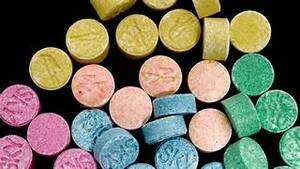6 Ridiculously Simple Ways To Improve Your Buy Mdma
الجسم
What are the risks of taking MDMA?
MDMA, or 3,4-methylenedioxymethamphetamine, is a synthetic buy mdma drug that alters perception and feelings. It is a member of the substituted amphetamine class of drugs and has stimulant and hallucinogenic effects.
MDMA is often taken in tablet or capsule form, but it can also be snorted or injected. The effects of MDMA typically last for 3-6 hours, but they can last longer with higher doses or if the person takes it again within a short period of time.
MDMA can produce a number of adverse health effects, including:
• Increased heart rate and blood pressure
• Nausea and vomiting
• Muscle tension and teeth clenching
• Severe dehydration
• Hyperthermia (elevated body temperature)
• Kidney failure
• Cardiac arrest
• Seizures
• Brain damage
• Death
MDMA use is also associated with a number of psychiatric problems, including:
• Anxiety
• Depression
• Paranoia
• Psychosis
• Memory problems
• Difficulty concentrating
• Sleep problems
Pregnant women who use MDMA may be at risk for miscarriages and birth defects. MDMA use can also lead to substance use disorders and addiction.
How can I stay safe if I choose to take MDMA?
The short answer is: be careful, and don’t overdo it.
The slightly longer answer is that there are a number of things you can do to reduce the risks associated with taking MDMA, and most of them come down to common sense. Here are a few tips:
1. Start with a low dose. It’s always best to err on the side of caution, and taking a smaller dose will help to reduce the chances of experiencing any negative effects.

2. Drink plenty of water. This will help to prevent dehydration, which can be a problem if you’re dancing all night.
3. Avoid mixing MDMA with other drugs, including alcohol. This can increase the chances of experiencing negative side effects.
4. Be aware of your surroundings. If you’re at a party or club, make sure you know where the exits are, and have a plan for getting home safely.
5. Trust your instincts. If something doesn’t feel right, or you start to experience any negative effects, then it’s best to stop taking the drug and seek medical help.
Where can I get more information about MDMA?
MDMA is a popular party drug that has a reputation for being both safe and fun. However, there is a lot of misinformation out there about MDMA, so it's important to get your facts straight before taking it. Here are six sources of reliable information about MDMA:
1. The National Institute on Drug Abuse (NIDA)
The NIDA is the US government's leading research agency on drug abuse and addiction. They have a wealth of information on MDMA, including its effects, risks, and potential for abuse.
2. The European Monitoring Centre for Drugs and Drug Addiction (EMCDDA)
The EMCDDA is the European Union's equivalent of the NIDA. They also have a lot of information on MDMA, including an extensive FAQ section.
3. The Drug Policy Alliance (DPA)
The DPA is a leading advocacy organization for drug policy reform. They have a section on their website devoted to MDMA, with information on its effects, risks, and the law.
4. Erowid
Erowid is a non-profit organization that provides information on psychoactive substances. They have an extensive MDMA vault with information on its history, effects, and risks.
5. MAPS
MAPS is a non-profit research organization that is studying the therapeutic potential of MDMA. They have a lot of information on their website about MDMA and their research.
6. The Multidisciplinary Association for Psychedelic Studies (MAPS)
The MAPS website is another great source of information on MDMA. They have a section devoted to MDMA research, with information on clinical trials and other studies.










تعليقات